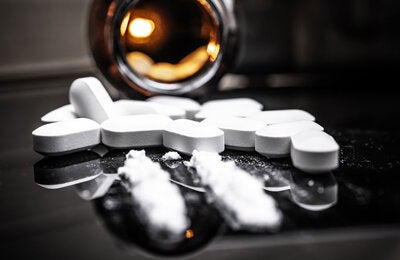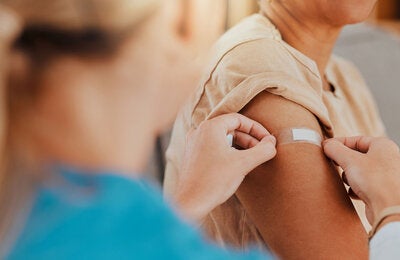
Proper preparedness can reduce the impact of hurricanes on health and life
Washington, DC, June 27, 2013 (PAHO / WHO) - Washington, D.C., June 27, 2013 (PAHO/WHO) — As the hurricane and rainy seasons begin, the Pan American Health Organization/World Health Organization (PAHO/WHO) is recommending that the population and health services make adequate preparations to help reduce the impact of these natural events on people's health and lives.
The 2013 Pacific hurricane season officially began on May 15. It began on June 1 in countries with coasts and maritime territories in the Atlantic Ocean, Caribbean Sea, and Gulf of Mexico. The season will continue until November 30 this year.
While hurricanes are unavoidable, their impact on health and life can be reduced with proper personal and family preparedness—for example, by ensuring that the food and water supply and immediate surroundings are secure. Steps should also be taken to guarantee that operations at hospitals and health centers continue.
PAHO/WHO recommends that everyone have a personal and family plan in place for weathering a tropical storm or hurricane. All family members should know what to do in an emergency. This plan should consider the risks in the immediate surroundings and include a safe meeting place in the event of an emergency.
It is also important to be ready with a suitcase or box of clothes, nonperishable food, water, portable radio, flashlight, batteries, and the most important family documents protected in a waterproof bag. If someone in the family needs medication—for a chronic disease, for example—any prescription drugs should also be included.
"When an emergency strikes, life comes first. When there is an alert, it is essential to keep informed and follow the instructions of the authorities at all times," emphasized Ciro Ugarte, manager of the PAHO/WHO Emergency Preparedness and Disaster Relief Area.
"In emergencies, there are three key considerations for protecting the health of the population: proper management of food and water, special care for the most vulnerable people, and ensuring that health services continue to operate," he said.
Hurricane-resistant hospitals
Hospitals and health care facilities should be accessible and able to withstand a storm or hurricane in terms of structure, vital lines (electricity, water, medicinal gases, and communications), medical equipment, and supplies. In such situations, protecting hospitals and other critical infrastructure, ensuring the continuity of health services, and restoring them if they are interrupted should be a priority.
In an emergency, health workers will be better able to perform properly if they are trained and equipped with up-to-date emergency response plans that have been tested through simulations or drills.
"Health workers must act in coordination with the early warning and civil defense authorities and other agencies to activate emergency plans when necessary," Ugarte said.
In 1976, PAHO/WHO created the Emergency Preparedness and Disaster Relief Area with the primary purpose of helping the health sector strengthen national disaster reduction programs and their interaction with all sectors involved in such programs.
PAHO was founded in 1902 and is the oldest international public health organization in the world. It works with all the countries in the Hemisphere to improve the health and quality of life of the peoples of the Region. It acts as the WHO Regional Office for the Americas and is also the specialized health agency of the Inter-American system.



